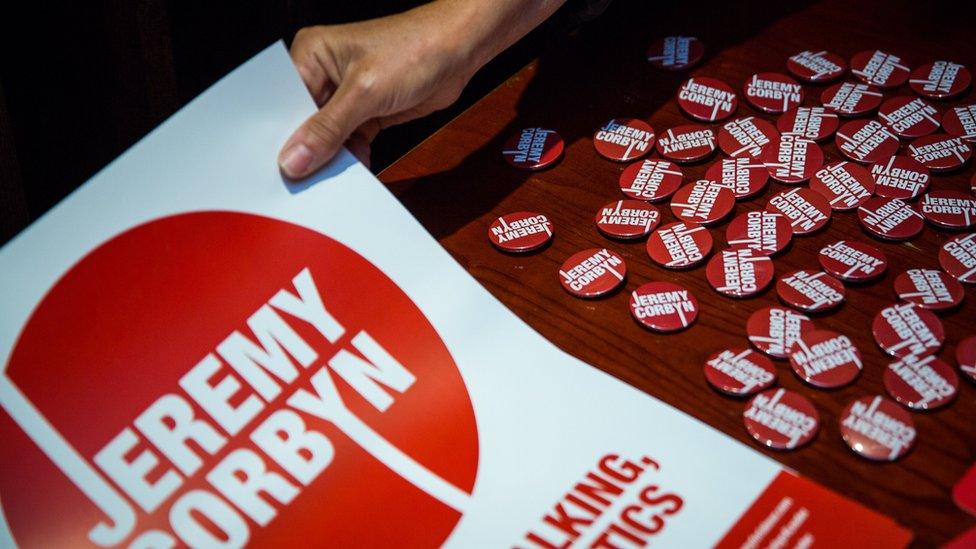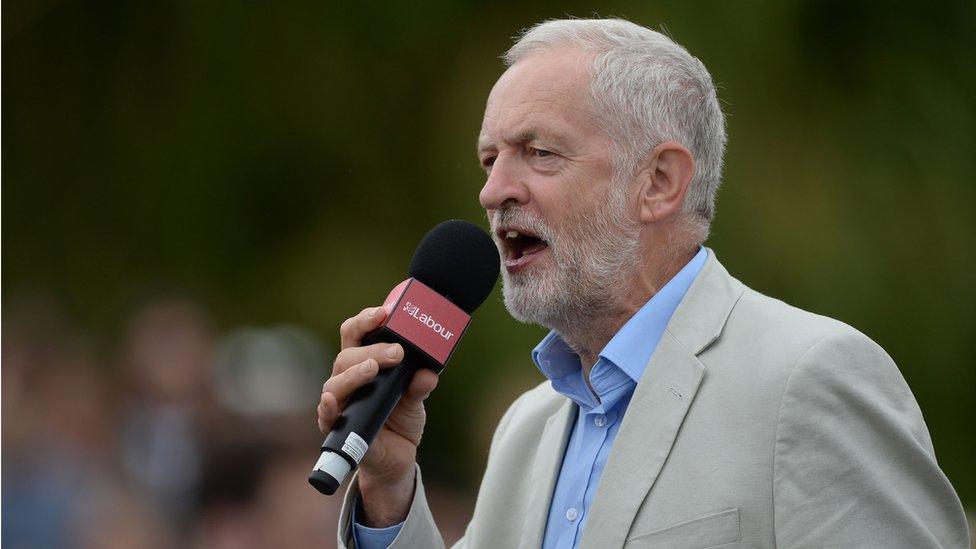Labour rule changes backed by ruling NEC
- Published

Changes to the way Labour elects its leader have been agreed by the party's National Executive Committee.
The threshold for nominations to get on a leadership ballot has been lowered from 15% of MPs and MEPs to 10%.
The changes, which now have to be agreed at party conference, could make it easier to elect a left-wing successor to Jeremy Corbyn.
The reforms also make changes to the make-up of the ruling executive committee.
They would see three more members elected by the largely Corbyn-supporting grassroots, with a new place likely to be given to USDAW, a union that did not back his leadership campaign.
Labour's annual conference, which begins on Sunday in Brighton, will now have to ratify the changes agreed by the NEC.
Mr Corbyn did not have the backing of most Labour MPs as he became leader - but has won two leadership contests by a landslide due to his strong support among party members.
This has triggered a debate within the party about where power should lie.

Some Corbyn supporters want the ballot threshold lowered further - to 5%
BBC political correspondent Iain Watson said some of Mr Corbyn's supporters had been pushing for the ballot threshold to be lowered further, to 5% - and that the issue would be revisited as part of a wider review into internal party democracy being carried out by ex-MP Katy Clark.
Mr Corbyn's spokesman said the leader welcomed the NEC's backing for the "expansion of democracy and participation in the party".
"Labour's membership has nearly tripled in the last two years - and the enormous benefits of that were felt at the last election," the spokesman added.
But Richard Angell, director of the New Labour pressure group Progress, said: "We are now in a permanent campaign to undermine the role of MPs, marginalise their voice and get them to acquiesce."